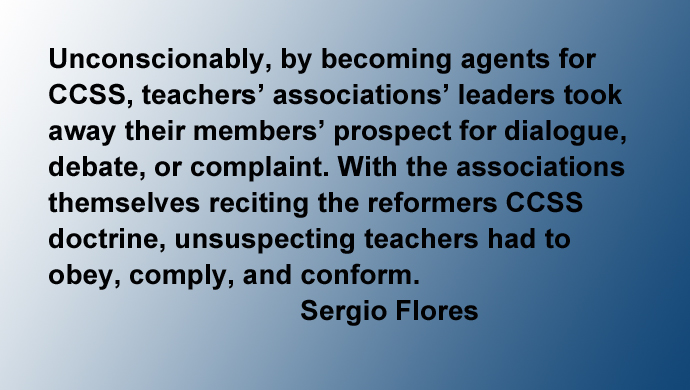A Veteran Teacher Asks: Why Does NEA Still Support Common Core?

By Sergio Flores.
My name is Sergio Flores, I have been a public school teacher for thirty-nine years. Ten years in Mexico and the rest in California in LAUSD and WCSD where I teach fifth grade now. I have been a member of NEA and CTA since 1991.
Six erratic years of Common Core State Standards have tens of thousands of parents and students feeling cheated, teachers more demoralized, and district officials troubled by the projected cost of testing alone. Enraged parents of the New York’s schools posting abysmal scores in the past two years brought national attention to irregularities of both the CCSS and their tests. In protest, 40,000 students opted out of the CCSS testing for next year[i]. In addition, in Chicago and Seattle, Florida, Ohio, New York, and New Jersey thousands of teachers have protested and even rejected to be part of the SBAC or PARCC testing[ii]. On top of these problems, now districts face a new expense to provide the computerized testing system. The cost of tests, bandwidth infrastructure, and devices in California alone may reach a billion dollar annually. [iii] So, in the face of this slow motion train wreck, I ask: why is NEA on board with Common Core?
Navigating the NEA website section Common Core State Standards (CCSS) gave me the impression of reading a paid promotional brochure. There are several subsections, articles, and informative videos explaining and promoting CCSS. Contrasting with the CCSS presence in the NEA website, the institution of public education receives minor attention.
Everything on the NEA section seems all right or innocuous; after all, it is information for NEA members. The CCSS “highlights” subsection stands out with a tool kit with links to CCSS materials; a Student Achievement Partners website full of free materials to better understand and implement CCSS; a list of propaganda

